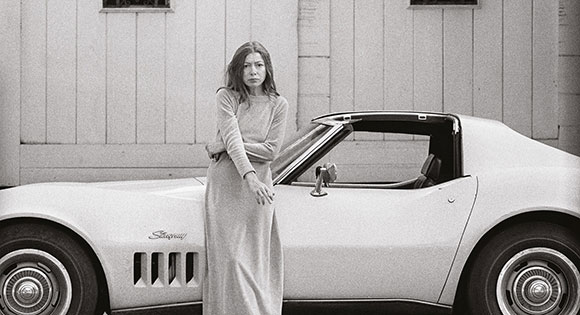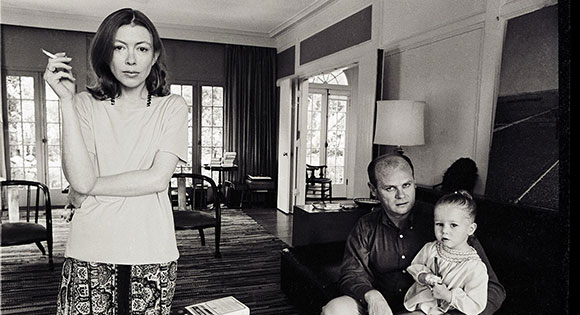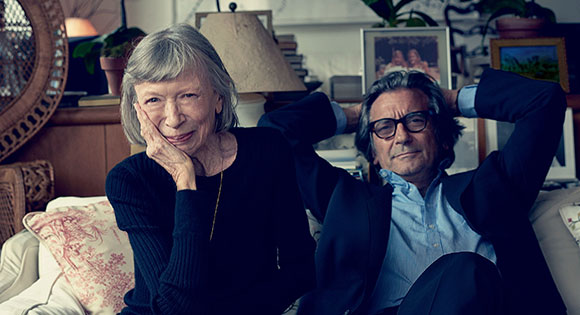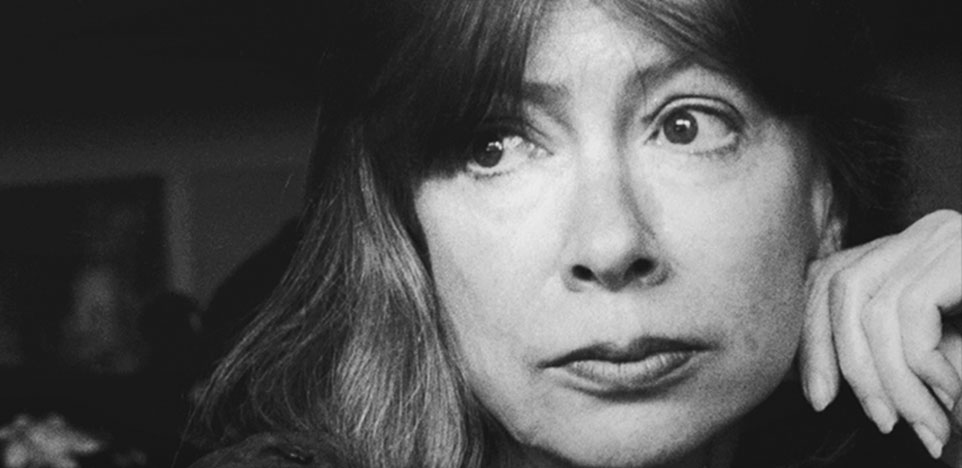Joan Didion has been praised and honored for her thoughtful, creative, and enlightening essays which cover the soulscape of the United States and its shades of light and darkness. As a California child, she was fascinated by the story of the Donner party who in the mid-1880s were snowbound in the Sierra Nevada mountains and resorted to cannibalism to survive. Later, she was captivated by the brutal and grotesque 1969 murders of Roman Polanski's wife by Charles Manson and his cult followers. For Didion, violence is the bedrock of American culture.
As a young girl she won a contest which took her to New York City to work for Vogue. It was during this period of her life that she wrote an essay on self-respect in which she celebrated this traditional virtue which emboldens one to accept responsibility for one's own life.

When she was 29, Didion married writer John Gregory Dunne and over the years they became soulmates, living in New York and then California. They wrote screenplays, attended Hollywood get-togethers, and traveled to Hawaii. Didion profiled the Doors and Janis Joplin and even proved herself to be a hospitable host to Harrison Ford, who was a carpenter at the time. Three filmmakers also were friends — Brian De Palma, Martin Scorsese, and Steven Spielberg.
Writer and director Griffin Dunne, Joan's nephew, grounds this documentary with his intimate interview with the feisty 82-year-old writer and celebrity. He captures and conveys the difficulties Didion experienced trying to raise Quintana, their adopted daughter, while working as a busy journalist. Her husband died of a heart attack, and this tragedy was followed by the sudden death of her daughter. The first loss was chronicled in her memoir The Year of Magical Thinking and the second in the 2011 book Blue Night. Didion adapted The Year of Magical Thinking into a play starring Vanessa Redgrave.

Here is a quotation from Joan Didion which sums up her way of looking at things:
"You get the sense that it's possible simply to go through life noticing things and writing them down and that this is OK, it's worth doing. That the seemingly insignificant things that most of us spend our day noticing are really significant, have meaning, and tell us something."

